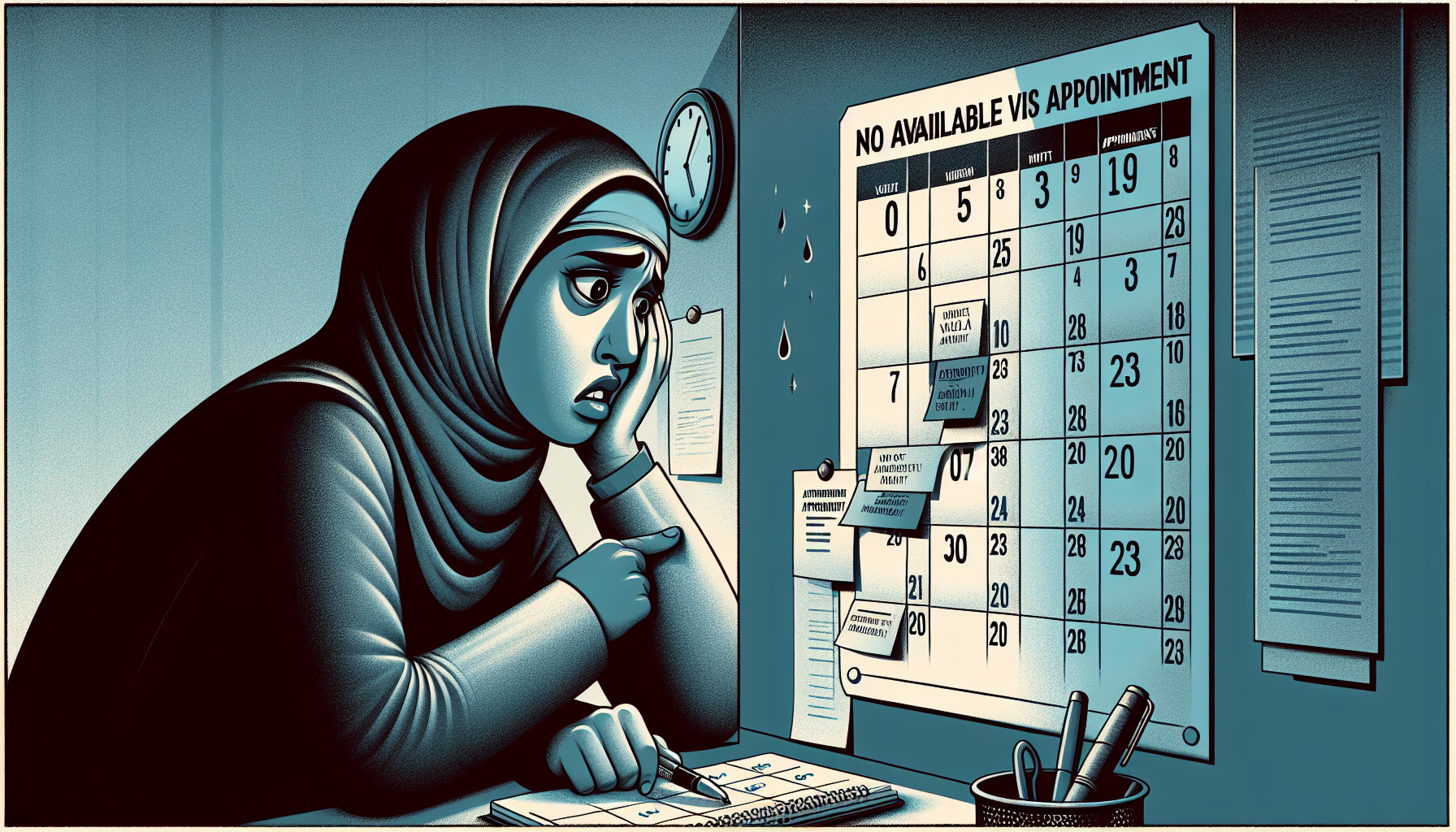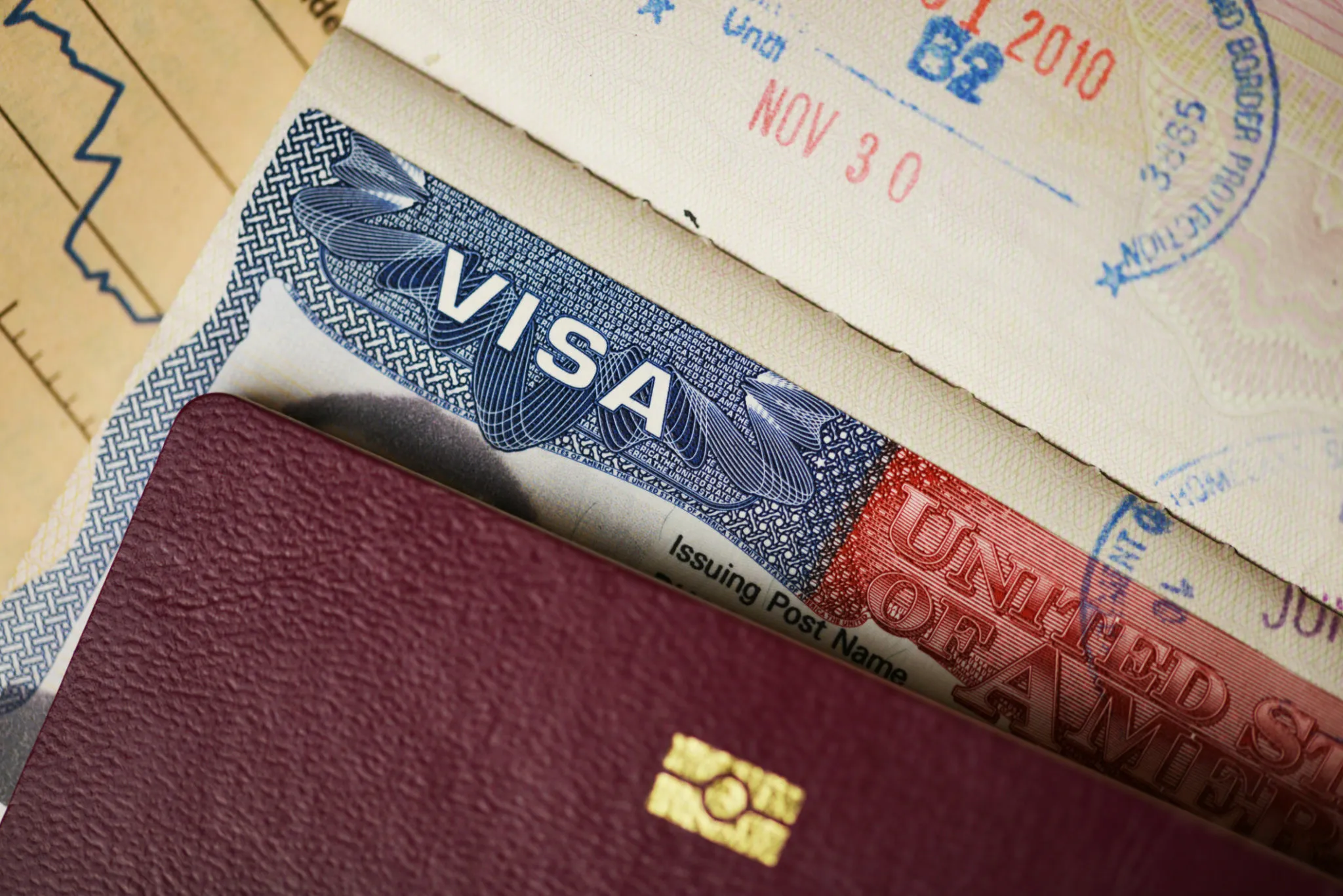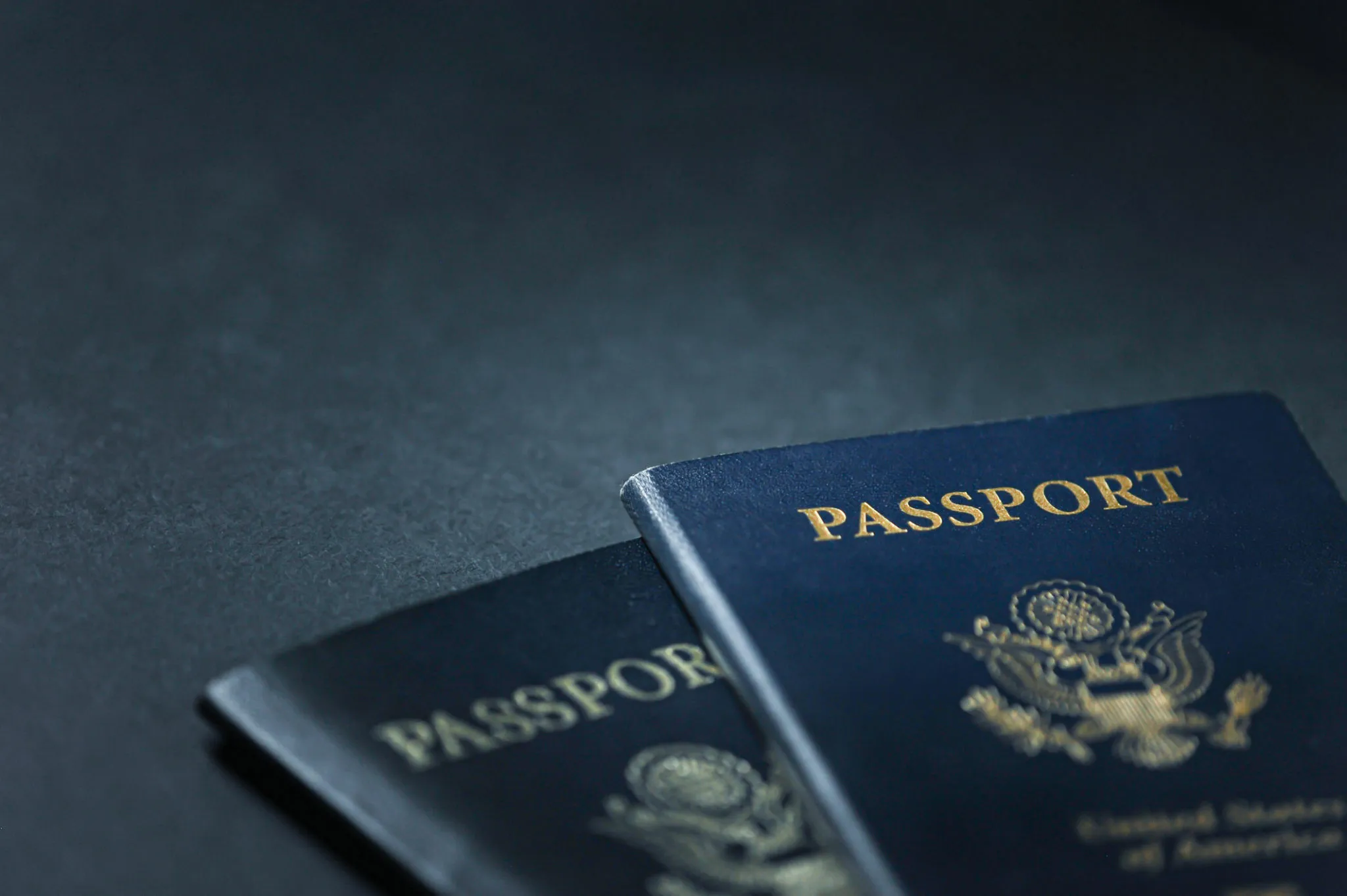Visa Guide
Why Are There No Visa Appointments Available?
Discover why there are no visa appointments available. Limited staffing, high demand, technical difficulties, COVID-19, backlog, seasonal factors, inadequate resources, administrative changes, visa specifics, geographical challenges – all contribute to the unavailability. Find out more!
You’re excitedly planning your dream trip to a foreign country, but you hit a roadblock when you realize there are no visa appointments available. Frustration sets in as you wonder why this is happening and what options you have. In this article, we’ll explore the reasons behind the scarcity of visa appointments and provide some insights into how you can navigate this challenging situation.
Limited Staffing
Staff shortage
One major reason why visa appointments may be unavailable is due to a staff shortage at the consular offices. Consulates are responsible for processing visa applications and conducting interviews, but if they don’t have enough staff members to handle the workload, it can result in a lack of available appointment slots. It’s important to keep in mind that consular staffing levels can be affected by various factors such as budget constraints, hiring freezes, or unexpected absences.
Long processing time
Another contributing factor to the unavailability of visa appointments is the long processing time for each application. Consular officers are required to thoroughly review each application and conduct interviews, which can be time-consuming. If the processing time for a single application is longer than expected, it can create a backlog and make it difficult to schedule new appointments. This is especially true during peak travel periods when there is a higher demand for visas.
Limited working hours
Consular offices typically operate during specific working hours, and their availability may be limited due to various reasons such as budget constraints or administrative policies. If the consulates have limited working hours, it can result in fewer appointment slots available to the public. This can be particularly challenging for individuals who have limited flexibility in their schedule and can only attend appointments during certain times of the day.
High Demand
Increased number of applicants
One of the primary reasons for the unavailability of visa appointments is the increased number of applicants. As more and more people choose to travel internationally for various reasons such as work, education, or leisure, the demand for visas naturally rises. Consulates may struggle to accommodate the growing number of applicants, leading to a shortage of available appointment slots.
Popular destination
Certain countries or regions may be particularly popular as travel destinations, resulting in a higher demand for visas. Consulates located in these popular destinations may face increased pressure to process a large number of visa applications, leading to a scarcity of available appointments. It’s essential for visa applicants to plan their travel well in advance, considering the popularity of their desired destination.
Temporary visa restrictions
Visa restrictions imposed by governments can also contribute to the unavailability of appointments. Governments may temporarily restrict certain types of visas, such as tourist visas or work visas, due to security concerns, health crises, or other unforeseen circumstances. When these restrictions are in place, consulates may be unable to offer appointments for the affected visa categories, resulting in limited availability for applicants.
Technical Difficulties
Online system failures
Consular offices often rely on online systems to manage the visa application process. However, technical difficulties can arise, causing the online system to experience failures or glitches. When these technical issues occur, it can disrupt the scheduling of visa appointments and make it challenging for applicants to secure a slot. Consulates usually work to resolve these technical issues as quickly as possible but it may take time to restore full functionality.
Lack of appointment slots
Even when the online system is functioning correctly, there may still be a limited number of appointment slots available. This can be due to various factors such as the consular office’s available resources or the volume of applications received. As a result, applicants may find it difficult to schedule an appointment within their preferred timeframe, leading to unavailability of visa appointments.
Difficulty accessing appointment website
Accessibility issues with the appointment website can also contribute to the unavailability of visa appointments. Applicants may experience difficulties accessing the website, either due to high traffic volume or technical issues. If applicants are unable to access the appointment website, they may be unable to schedule an appointment, further adding to the overall unavailability.
Backlog of Applications
Processing delays
Processing delays can occur for various reasons such as an increase in visa applications, limited consular resources, or stringent security checks. When there is a significant number of applications to be processed within a limited timeframe, it can result in a backlog. This backlog can significantly impact the availability of visa appointments, making it difficult for new applicants to secure a slot.
Elevated security checks
Consular offices prioritize the security screening of visa applicants to ensure the safety and integrity of the visa process. However, conducting thorough security checks can take time, especially when there is a heightened need for scrutiny. If security checks are taking longer than anticipated, it can result in processing delays and ultimately contribute to the unavailability of visa appointments.
Cumulative backlog from previous months
Backlogs from previous months can continue to affect the availability of visa appointments in the present. If a consular office had a backlog that was not fully processed, the remaining applications will carry over to the next month, potentially adding to the workload and making it challenging to open up new appointment slots. These cumulative backlogs can result in a prolonged unavailability of visa appointments.
COVID-19 Pandemic
Travel restrictions
The COVID-19 pandemic has had a significant impact on international travel, leading to various travel restrictions imposed by governments around the world. These restrictions may include temporary bans on travel from specific countries or limitations on visa issuance. As a result, consulates may have limited capacity to offer visa appointments or prioritize certain types of visas, leading to unavailability for many applicants.
Closed consulates
To limit the spread of the virus, some consular offices may have temporarily closed or operated with reduced staffing levels. Closed consulates mean that visa services are not available, and appointments cannot be scheduled. As consulates gradually reopen, they may face a considerable backlog of applications, further contributing to the unavailability of appointments.
Reduction in visa services
To comply with social distancing measures and ensure the safety of their staff and applicants, many consulates have reduced or modified their visa services during the pandemic. This reduction can include offering a limited number of appointment slots or suspending certain visa categories altogether. The reduced availability of visa services can make it challenging for individuals to secure a visa appointment.
Seasonal Factors
Peak travel periods
Certain times of the year, such as summer or holiday seasons, are considered peak travel periods. During these periods, the demand for visa appointments tends to be higher as more people plan their vacations or visit their families abroad. Consular offices may struggle to accommodate the increased volume of applications during these peak periods, resulting in the unavailability of visa appointments.
University admissions
Students who plan to study abroad often require a student visa to pursue their education in a foreign country. University admission periods, especially for popular universities or competitive programs, can generate a significant influx of visa applications. As a result, consulates may face a surge in demand for student visa appointments, further exacerbating the unavailability issue.
Holiday seasons
During holiday seasons, individuals may choose to travel internationally to celebrate with their families or explore new destinations. The increased travel during holidays can lead to a higher demand for visas, causing consulates to reach their capacity quickly. To avoid disappointment, it is essential for applicants to plan their visa application well in advance, considering the potential limitations during holiday seasons.
Inadequate Consular Resources
Insufficient funding
Consular offices rely on funding to maintain their operations and provide visa services. However, limited funding can result in a lack of resources needed to adequately handle visa applications. Insufficient funding may impact staffing levels, technology infrastructure, and overall efficiency, making it difficult to provide enough visa appointment slots to meet the demand.
Inadequate staffing
Inadequate staffing levels can significantly affect the availability of visa appointments. Consulates require a sufficient number of consular officers and support staff to process applications efficiently. If consulates do not have enough staff members, they may struggle to meet the demand for appointments, leading to unavailability. Increasing staffing levels can help alleviate this issue and provide more appointment slots for visa applicants.
Inefficient processes
Consular processes and procedures play a crucial role in the efficient handling of visa applications. Inefficient processes, such as outdated or convoluted workflows, can hinder consular offices’ ability to process applications in a timely manner. Streamlining and optimizing these processes can help improve efficiency and increase the availability of visa appointments for applicants.
Administrative Changes
Policy updates
Governments may introduce policy updates or changes that impact the visa application process. These policy updates can include new requirements, additional documentation, or revised eligibility criteria. When such changes occur, it may take time for consular offices to adjust their systems and procedures accordingly. During this transition period, availability of visa appointments may be limited until the updated policies are fully implemented.
Procedural changes
Consulates may also make procedural changes to enhance the visa application process. While these changes are typically intended to improve efficiency, they can initially cause disruptions and affect the availability of appointments. Consular offices may need time to train their staff and adapt to the new procedures, resulting in a temporary unavailability of visa appointments.
Increased documentation requirements
Changes in documentation requirements can also impact the availability of visa appointments. If consulates introduce additional documentation requirements or request more extensive supporting materials, it can create a higher demand for visa appointments. Applicants may need more time to gather the required documents, leading to a temporary unavailability of visa appointments.
Visa Category Specifics
Limited quota for certain visas
Certain visa categories have limited quotas determined by the government. Examples include employment-based visas or visas for family reunification. When the number of applications exceeds the available quota, it can result in a shortage of visa appointment slots. Applicants must be aware of the specific visa category’s limitations to properly plan and secure an appointment.
Additional visa processing steps
Some visa categories require additional processing steps, such as background checks, medical evaluations, or interviews with multiple consular officers. These additional steps can prolong the processing time for each application, leading to a reduced number of available appointments. Applicants should familiarize themselves with the specific requirements of their chosen visa category to better understand the potential delays and unavailability.
Complex documentation requirements
Certain visa categories may have complex documentation requirements due to the nature of the visa or the applicant’s circumstances. These complexities can make it challenging for consular offices to review the applications efficiently, potentially resulting in a backlog and limited availability of visa appointments. It is important for applicants to carefully review and fulfill all documentation requirements to avoid unnecessary delays or unavailability.
Geographical Challenges
Remote locations
Consular offices in remote or less densely populated areas may have limited resources and staff members available. These limitations can affect their ability to offer a sufficient number of visa appointments. Applicants residing in remote areas may face additional challenges in securing a visa appointment due to the limited consulate presence in their vicinity.
Limited consulate presence
The presence of consulates can be limited in certain regions or countries. Consulates may be located only in major cities or specific geographic areas, making it challenging for individuals in other regions to access visa services. Limited consulate presence can result in a higher demand for appointments in those few locations, leading to unavailability for many applicants living elsewhere.
Higher demand in specific regions
Demand for visas can vary significantly by region or country. Some regions may have a higher demand for visas due to factors such as economic opportunities, academic programs, or family connections. Consular offices in these high-demand regions may find it challenging to meet the volume of applications, resulting in a scarcity of available visa appointments.
Didn't find what you were looking for? Search here













